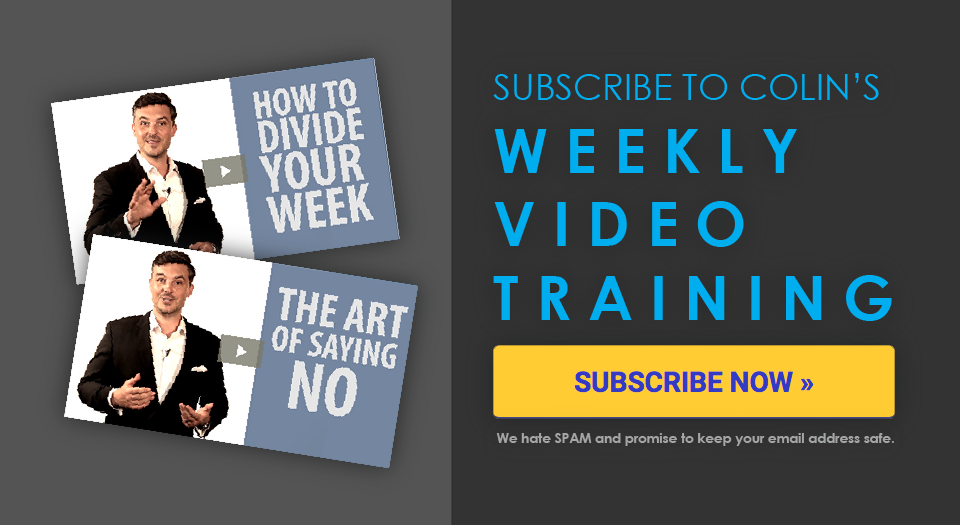In today’s conversation, I want to talk to you about how you say ‘no.’
It’s been said on Forbes (I’ve been reading it recently) that leadership is actually the art of saying ‘no,’ not ‘yes.’ It’s very easy to say ‘yes’ to stuff. But if you can say ‘no’ to the right things and actually say ‘yes’ to the right things, you are going to accelerate your leadership, your communication, your performance to a whole new level.
There are three problems that I’ve noticed.
1. One of the first problems that I noticed with people saying ‘no’ is they actually don’t know what to say ‘no’ to — which is another conversation in itself.
Knowing your priorities, knowing what’s important and what’s urgent for you is crucial so you can actually say ‘no’ in a more definitive, decisive way.
2. The second problem around saying no is people don’t want to offend another person. You want to be agreeable. You want to stay in rapport. You want to say it respectfully. We don’t want to offend the other person, it makes us feel uncomfortable. That’s another big problem with saying ‘no.’
3. And the third problem with saying ‘no’ is that we don’t know how to say ‘no.’ We don’t know how to communicate it.
What I want to share with you right now is just a few strategies around how you can say ‘no.’
One strategy you can use to say ‘no’ is what I’ve created called the 3 T’s. It stands for Thank, Task, and Time.
Let’s say someone comes in to you and says, “Hey, can we have a chat about this project?” And you know it’s not going to take 5 minutes, it’s going to take half an hour.
1. What you say to them is you Thank them, first of all, because you’ve got to be respectful. Say,
“Hey, thanks so much for coming in. I really appreciate it…”
Say it in a genuine way.
2. Then you go to Task. And you say,
“I’m just working on a really urgent task at the moment.”
Now, I said ‘urgent.’ The funny thing is that people should respect ‘important,’ but most of the time, they don’t. They actually respect “urgent” more. So you say the word “urgent”.
3. And then you move onto Time.
“When would be a better time for us to catch up?”
Note: 3 pm is usually a good time to have a conversation, because you’ve done all your thinking, all your strategic time. I leave conversations to after 3pm most of the time.”
So you can say,
“Hey, how does after 3pm sound? Can we chat about it then?”
Or set up a time in the future.
So that’s really a nice, elegant, and respectful ways of saying ’no.’ The 3 T’s. THANK, TASK and TIME.
Another strategy you can use when someone comes and asks you to do something, is saying something like,
“Hey, I don’t know if I’m the right person for that. I appreciate you coming. Why don’t you go and chat with X.”
And then you refer them onto another person.
Another one is:
“Hey, this is a really great idea, but [insert reason].”
The ‘but,’ in a sense, negates what you said. But that’s okay.
“Hey, this is a really great idea, but I’m just working on some things that are pushing me in terms of deadline at the moment. Can we talk about it later?”
So they’re just two other strategies or language grips that you can use to say ‘no’ with.
Please like, tweet and share this video on Linked in if it was useful for you.
Also – Please leave a comment below:
How do you say no?
Discover the secrets of the Super Productive.
Join Colin for a free masterclass on productivity.
In this training, you’ll discover:
- How to create a Super Productive Mindset (the exact thinking you must have to produce incredible results)
- The secret to leveraged energy – this is like a Red Bull for your daily productivity
- 3 critical brain rules – and how you can use them to work with your brain, not against it




